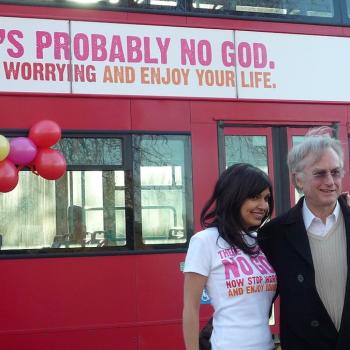Pulpit Masters and Heterodoxy
“Anytime someone can stand in the pulpit and tell you what you can and cannot wear, and what you can and cannot do or you’re going to hell…”

I walked into a group of 4 before service Wednesday night. Little did I know we would be discussing doctrine for the next 10 minutes.
The First Person said that another had come out of the Apostolic Church.
Immediately I asked, “What type of Apostolic? There are all types.”
The First Person said, “Maybe I shouldn’t have said Apostolic.”
So I asked the Former Apostolic what they used to believe about the Trinity.
The Former Apostolic replied, “It was Oneness.”
A little surprised by how candid the person was being with me, I asked more questions.
Me: “Did you have to speak in tongues to be saved?”
Former Apostolic: “Yes we did and we had to be baptized. It was in Jesus’ name only. I left when I was like 12.”
Me: “Were you rebaptized later?”
Former Apostolic: “Yes.”
The First Person piped up again: “It’s a cult! Anytime you don’t believe in the Trinity…”
Former Apostolic: “Anytime someone can stand in the pulpit and tell you what you can and cannot wear, and what you can and cannot do or you’re going to hell…
I wonder what they would think of my tattoo” (flashing some nice inside forearm artwork).
engagement with the conversation
We all knew what we were talking about, so there was no need to elaborate. It was a good discussion among friends. What may be needed for the reader is a little definition.
Oneness is a doctrine which has various forms. The most common belief is that God remained one person through it all, somehow becoming Jesus Christ, and then becoming the Holy Spirit. There is therefore no room for the Trinity in Oneness circles.
Oneness can probably be traced back to something like Sabellianism, an ancient heresy. It’s also called Modalism. The Father, Son, and Holy Spirit are 3 modes of the same God.
At one point the First Person said the Former Apostolic, “finally realized Jesus wasn’t schizophrenic!” One wonders with Modalism…
Now that I’ve addressed Oneness a little, and again there are various forms, I’d like to address the use of the term cult.
Faulty doctrine does not make a church a cult. The proper term for the faulty doctrine is heterodoxy. It is heterodoxy if the belief/s are outside of the generally accepted beliefs of the church universal and historical.
Now it may be cult-like based on the amount of control the leaders exercise over the congregation. As the Former Apostolic says, “anytime someone can stand in the pulpit and tell you what you can and cannot wear, and what you can and cannot do or you’re going to hell…”
for further reading
In 1999 we changed our doctrine on the Godhead. I’m a little nervous still with the use of this term because it has been used in various ways. It doesn’t carry the same clarity as the term Trinity. Nonetheless, our updated doctrine sounds very Trinitarian, incorporating modern and ancient ways of describing the Trinity. It’s really quite beautiful. However, historically with the term Godhead you invariably have the question, “Is it 3-in-1 or 1-in-3?”
You can read the PCG doctrine here CLICK
Strangely enough, the place to start when proving the Trinity to Oneness people is not by proving the Trinity. It is by challenging their views of Jesus Christ. In fact every major religion has a view of Jesus Christ. If these views can be challenged with correct doctrine, you usually win the debate. The Council of Chalcedon was especially helpful in formulating doctrine about our Lord (4th Ecumenical Council, A.D. 451).
To see an excellent graphic called the Chalcedonian Box, used in seminaries to teach right doctrine of Christ and to refute heterodox doctrine, CLICK
Once you rightly establish the full Personhood of Jesus Christ, you have very good grounds for discussing the Trinity.















